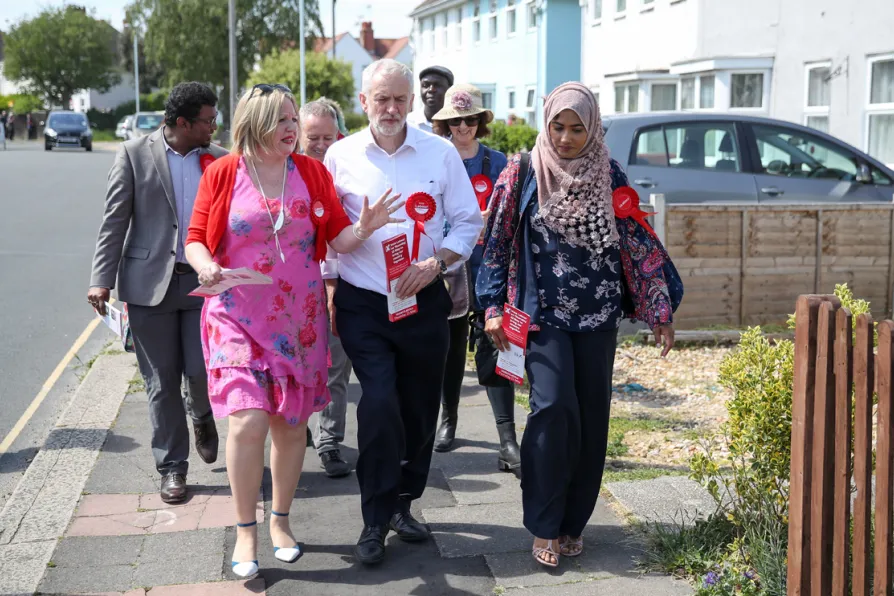John Wojcik pays tribute to a black US activist who spent six decades at the forefront of struggles for voting rights, economic justice and peace – reshaping US politics and inspiring movements worldwide

 OF THE PEOPLE FOR THE PEOPLE: Jeremy Corbyn canvassing in Worthing, West Sussex before the European Parliament election in May
OF THE PEOPLE FOR THE PEOPLE: Jeremy Corbyn canvassing in Worthing, West Sussex before the European Parliament election in May
JEREMY CORBYN has this week announced Labour will back Remain in the event of no deal, or a Brexit that threatens workers’ rights, while John McDonnell recently claimed Labour should pivot to a Remain position, given the party’s current performance in polls.
Corbyn is correct to ensure a hard Brexit doesn’t break the backs of the poorest, but when the time comes to decide whether to fully back Remain in any circumstances, it would be wise to avoid going all in.
The party’s election policy on Brexit has yet to be announced, but should a general election be called, Labour will have to announce to the electorate whether it will take the country out of the EU or not, if Britain has not yet broken with the EU.

Every Starmer boast about removing asylum-seekers probably wins Reform another seat while Labour loses more voters to Lib Dems, Greens and nationalists than to the far right — the disaster facing Labour is the leadership’s fault, writes DIANE ABBOTT MP

In the run-up to the Communist Party congress in November ROB GRIFFITHS outlines a few ideas regarding its participation in the elections of May 2026

VINCE MILLS cautions over the perils and pitfalls of ‘a new left party’

While Reform poses as a workers’ party, a credible left alternative rooted in working-class communities would expose their sham — and Corbyn’s stature will be crucial to its appeal, argues CHELLEY RYAN









